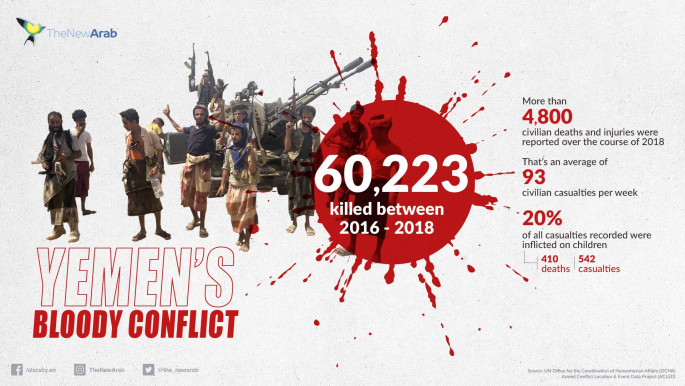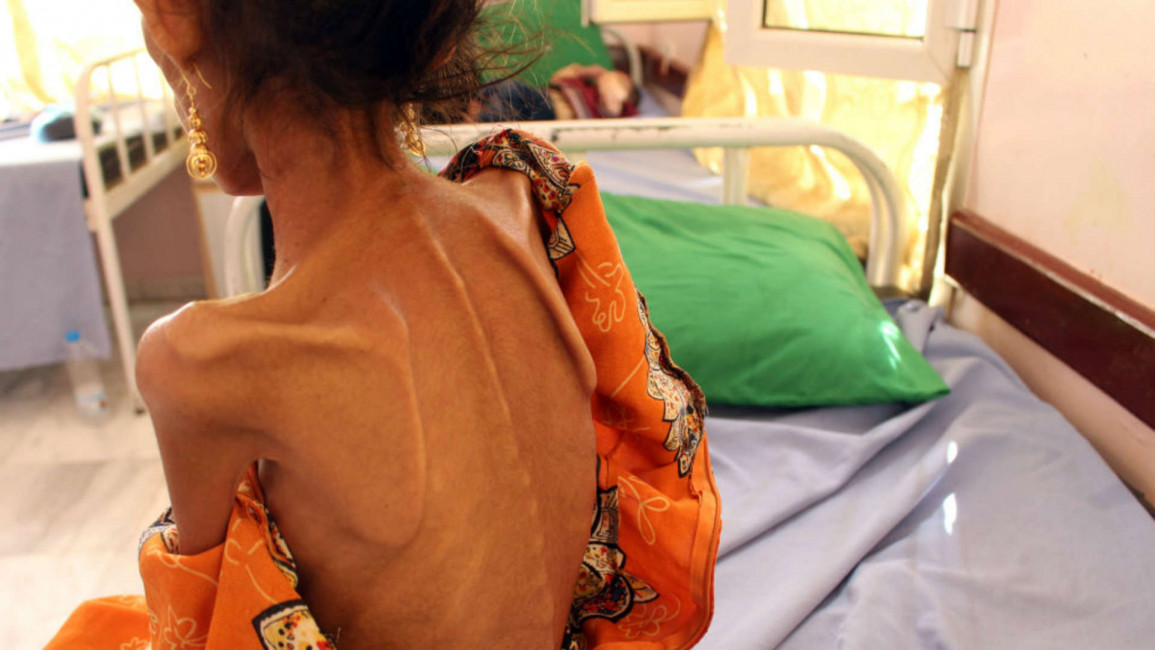
Yemen: Where your worst nightmares have become reality
I didn't think there were many things left that could shock me but what I saw on the ground in Hodeidah, Sanaa and Aden when I visited this month chilled me to my core.
I saw so many children, with desperate staring eyes, ravaged by acute malnutrition and in some cases, cholera. Some were struggling to stand, never mind walk. I saw many others who had lost their limbs in bombing attacks or following a land mine explosion.
Many of these children are traumatised by what they have seen and experienced and for some of them, the loss of their parents and brothers and sisters.
But the stories my team shared with me shocked me even more. For example, a father arrived at one of our distribution points with petrol and his children, threatening to set them on fire because he had no means to feed them. Even dying this way was better than starving to death, he said.
To make matters worse, fears are now rising that we could be on the brink of a fresh cholera epidemic, with the disease believed to have infected well over one million people.
 |
What I saw on the ground in Hodeidah, Sanaa and Aden when I visited this month chilled me to my core |  |
In just one week in February there were over 6,700 suspected cases and more than 560 people have died of the disease so far this year. I visited a mother and child health facility in Sanaa and of the 120 admitted, 17 were confirmed cases of cholera.
The conditions there were so poor that there was no isolation centre to treat cholera cases, and sometimes more than five people were sharing two beds.
Those with infectious diseases such as cholera were not being properly isolated, and conditions were almost begging the germs to jump from body to body, ravaging those already frail from malnutrition and other diseases that are not being properly treated due to a chronic lack of medicine and medical supplies. Premature babies are particularly at risk, in incubators with no ventilation and no adequate medical care.
 |
|
This is upsetting for anybody, but as a mother, when you compare what life is like in Yemen, to my life at home, it doesn't just feel like another country, but a dystopian parallel universe where your worst nightmares have become a reality.
Even if they survive this brutal war, I wonder what kind of future they will be able to have. The social consequences of the conflict are also bound to have ramifications for years to come. Early child marriage has always been a problem in Yemen, which even before the war was one of the poorest countries in the region, but this war has set the country back decades, if not longer.
The sheer desperation people experience; with the pressure to feed their families and pay off debts means they are giving their daughters away for marriage younger and younger. The families say they do not want to do this but that early marriage is better than starvation or death.
 |
Those with infectious diseases such as cholera were not being properly isolated, and conditions were almost begging the germs to jump from body to body |  |
Everywhere I went, I saw people in desperate circumstances, including health workers who had not been paid for three years.
Islamic Relief is doing what it can to help, providing food to over two million people every month and supporting health clinics and hospitals and running feeding centres to help severely malnourished mothers and babies.
But it is no mean feat. Aid workers themselves are falling prey to this conflict. Just last week, an aid worker was killed by shrapnel wounds following clashes in Hodeidah. And one driver working with the Islamic Relief team was killed by a stray bullet in Hodeidah in January. The security situation also makes it difficult for us to travel around the country. Access for aid agencies must urgently improve.
But what's really needed in Yemen is a lasting peaceful solution. Despite what everyone has been through in this country, I was overwhelmed by their warmth and kindness. And it breaks my heart to think there is no clear end in sight to the conflict that is bringing these people to their knees.
While there were hopes that the initial agreement for a ceasefire in Hodeidah would have held, our staff in Hodeidah are telling us of an increase in heavy fighting and are seriously concerned for the impact this will have on the population.
All parties to the conflict must put people first and stop this brutal war, before it is too late.
Najat Elhamri is Head of Middle East and Eastern Europe region at Islamic Relief Worldwide.
This article was republished with permission from the Thomson Reuters Foundation.
Opinions expressed in this article remain those of the author and do not necessarily represent those of The New Arab, its editorial board or staff.



